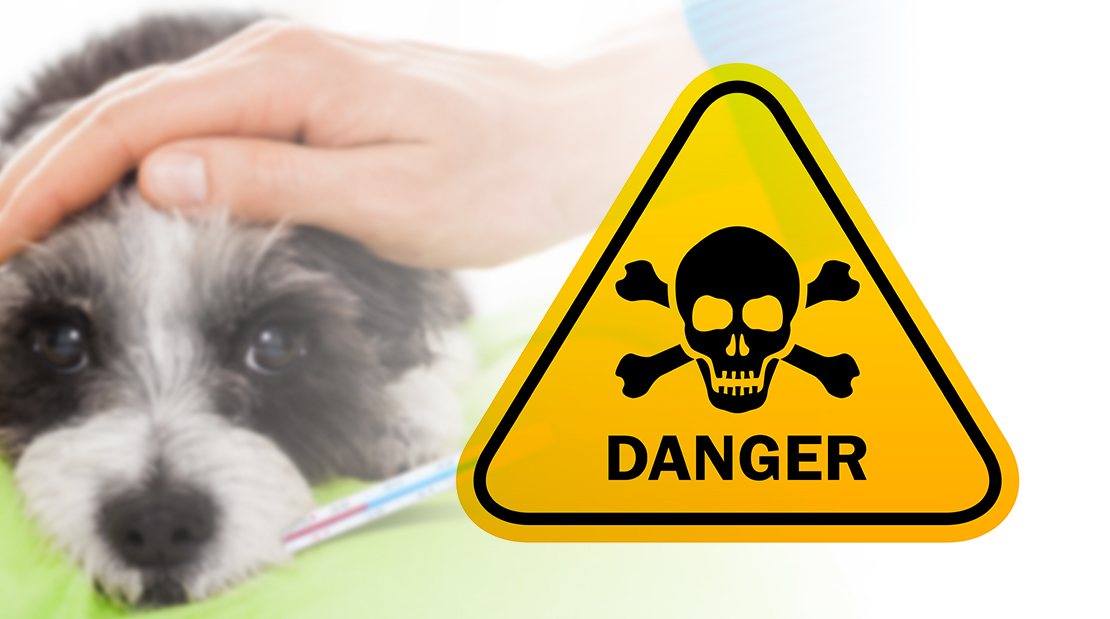
Preventing Pet Poisoning
When it comes to protecting our pets from poison and toxins, it doesn’t matter your upbringing, level of education, or love for animals, there are just some things we do not know. So, it’s important to learn how to best protect our animal friends. We’ve seen our parents and family members enact certain behaviors when raising pets, so we may be led to believe particular snacks and treats are okay for animals to have. “Mom and Dad did it, so it must be right?” Wrong. We live in homes we love, with décor, foods, and products that we have NO CLUE could harm pets we dearly love.
Recently, a client I’ve had for years had a blood test run on their dog, and the kidney values were elevated. Further diagnostic testing led us to realize the dog had been eating grapes. Many people don’t realize grapes can lead to kidney and renal failure.
Besides grapes, other harmful food items include: Raisins, apple cores, apple seeds (though, actual apple slices are fine), cobs of corn, peach pits, garlic, onions, hot peppers, and even avocados (birds).
During holidays, we are often festive and decorate with seasonal plants. Around Easter, you may have Lilies. During the Christmas season, you may have Poinsettias. Both of these are toxic to animals. Also, those Sago Palms you may have in your yard are dangerous. We can make a mistake and leave these plants within a pet’s reach and not recognize the potential harm we’re causing.
Here are some side effects from some of the aforementioned household foods and products:
Grapes and Raisins – can cause kidney failure and renal failure
Sago Palms (Dogs love their roots, nuts, seeds) – can cause liver failure
Chocolate – can cause GI upset and anemia
Ibuprofen – can cause anemia and GI ulcers
Garlic/Onions – can cause anemia and are toxic to the GI track
Oleander – most common decorative plant in yard that is the most toxic, causing irregular heart rhythms which could lead to death
Poinsettia – can cause GI upset
Corn and peach pits – can get lodged in the GI track, causing obstruction which can make animals choke
Apple cores and seeds – contain cyanide which—in high amounts— can cause blood issues
Avocado – can cause harm to birds due to a toxin called persin
Rat Poison – can cause neurological disease or death
Rat poison is tasty, so not just rats are drawn to it. Try to be aware of your neighbors’ behavior just in case they have a vermin problem they are trying to solve, and your pets tend to frolic. Something else to keep in mind are cases where a dog or cat swallows a rat that ingested poison.
Also, cleaning products, chemicals, antidepressants, and even medical marijuana (since it’s legal in many places), are dangerous toxins. Animals will experience similar effects to that of humans, if they grab hold.
Many of the items I’ve discussed can be found in your average home. So, if they are on the floor, within paw reach, or if children feed the animals, it could be life-threatening. Remember, if you are ever unsure if an item could be harmful, contact your vet.

